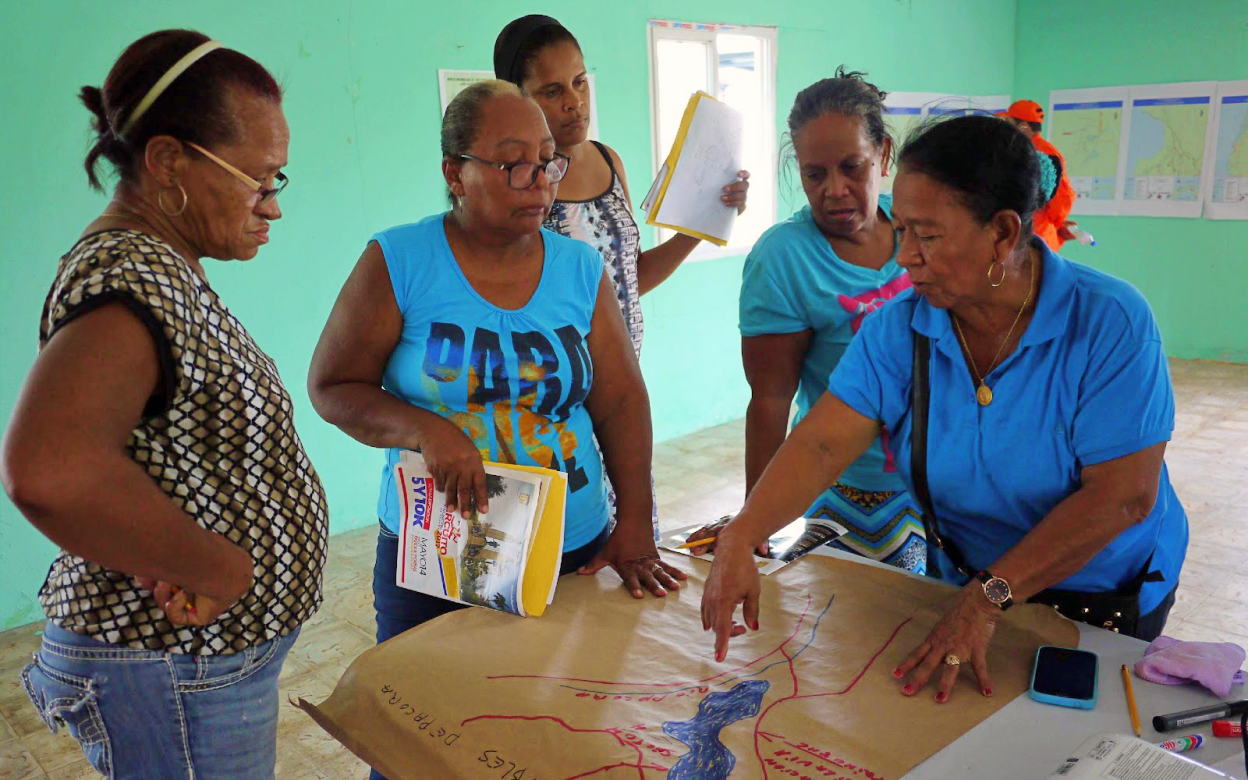Accelerators launch 26 new participatory climate & digital programs
/In a world where many are increasingly concerned with climate issues and accelerating digital innovations, organizations and governments are looking for ways to engage citizens in decision-making about these issues. Our accelerator programs, the second Climate Democracy Accelerator (CDA) and the inaugural Digital Democracy Accelerator (DDA) are ideal sites for organizations seeking intensive and expert support to launch participatory programs for climate and digital policy issues.
In October 2023, People Powered launched two accelerators, the programs convened 27 governments and organizations from 20 countries, chosen from 300 applications from all over the world. Through these programs, we supported participants through various activities including self-paced asynchronous courses, expert mentorship, live sessions, implementation grants, and the use of our Participation Playbook. The online training courses focused on climate and digital issues, participatory democracy approaches, inclusion, building support for participatory programs, and how participants can implement and evaluate participatory processes.
During the intensive 5-month period, participants used a range of activities, resources, and support to develop action plans in partnership with local governments and Civil Society organizations. These programs enabled participants to develop 26 action plans for participatory and deliberative programs tackling digital policy or climate issues. Both programs ended with celebration sessions, during which the participants showcased their action plans.
Now, we want to celebrate their accomplishments and share their projects, which are now going to be implemented into participatory and deliberative programs that will effectively engage citizens in making decisions about digital policy and climate solutions or policies.
Shaping climate action: 15 projects from 11 countries
The 2023-2024 Climate Democracy Accelerator (CDA) cohort has just finished intensive 5-month training in shaping action plans that use the tools of participatory democracy to move towards a just transition. From our 2022-2023 CDA cohort, we are already starting to see the potential impacts of participatory climate democracy, from participatory policymaking in Zimbabwe in the aftermath of a cyclone, to legislative theater with the Green Governance Trust to redefine how people and government work together.
The 15 participants of our 2023-2024 cohort represented partnerships of civil society and local governments from 11 different countries, including India, Indonesia, Mexico, Kenya, Nigeria, Ecuador, Argentina, Armenia, Panama, Malawi, and Uganda. Their action plans represent a wide variety of climate issues, ranging from waste management to watersheds to participatory environmental governance strategies.
Read an overview of each of their projects here.
Each of these projects will be delivered over the course of the next 6 to 12 months, each having received a $10,000 grant to support the start of their implementation, and an additional $20,000 awarded to the organization Himad Samiti, in India, and their plan for watershed governance detailed in the link above. These teams will join the wider CDA alumni community, made up of practitioners and policymakers around the world who are using participatory democracy to tackle the climate crisis for a just transition. View the map of CDA alumni below.
Shaping digital policy: 12 projects from 9 countries
During the Digital Democracy Accelerator (DDA) inaugural cohort, 12 participants explored the complex intersection of digital policy and participatory democracy. The program brought together a diverse group of organizations with a shared mission to plan and implement participatory and deliberative programs that will lead to more equitable and effective digital policies and effectively transform how governments engage people in digital policymaking.
The DDA cohort was made up of 12 European participants from nine countries, including Spain, Denmark, the United Kingdom, Poland, Greece, Romania, Germany, Bulgaria, and France. Eleven participants of the 12 participants successfully completed program requirements. The participants focused on a wide range of digital issues facing their countries and communities, including misinformation and media literacy, AI in academic settings, AI development, at global and local levels, open source software, lack of regulation concerning online discrimination, climate data, youth digital policy recommendation, participation of migrants and marginalized groups in the development of digital policies and digital policymaking.
Over the program, participants explored different participatory democracy models; in the end, participants selected two common participatory democracy models, five chose participatory policymaking, and four chose citizen's assemblies for their digital policy projects. However, for two of the participants, they selected an innovative combination of participatory democracy approaches, the organizations will be using a combination of participatory policymaking and citizens’ assemblies activities in their projects.
One of the main highlights of the program was the in-person workshop we hosted in November 2023, in Berlin; this allowed program participants to build relationships with each other, their mentors, and partners. All participants who completed the program requirements received a U.S.$15,000 grant to help implement their projects. Two of the best action plans, developed by organizations, Fundacja Pole Dialogu and American University in Bulgaria, received an additional $100,000 implementation grant award each.
Fundacja Pole Dialogu’s project focuses on the protection of children’s rights in the digital world. The aim is to bring the recommendations of citizens' assemblies to institutions advocating for and implementing the policies – parliament, government, and ombudsman for children's rights. While the American University in Bulgaria’s project focuses on creating a safe environment for students, faculty, and staff to deliberate the threats and opportunities of using AI in academic settings. This project is a response to the university's decision to ban the use of AI without the engagement and participation of the faculty and students about the benefits and risks of AI.
The road ahead
Participants are expected to implement their action plans in the next six months. We expect that the program will have a real impact on their communities on issues related to climate change and digital democracy.
Do you want to find out more about the key learnings, the status of their projects?
Register for our learning webinars co-organized with Open Government Partnership and Trust, Accountability, and Inclusion Collaborative (TAI) to learn more!
May 14: Learning Webinar on innovations in Digital Democracy
June 18: Learning Webinar on Innovations in Climate Democracy












